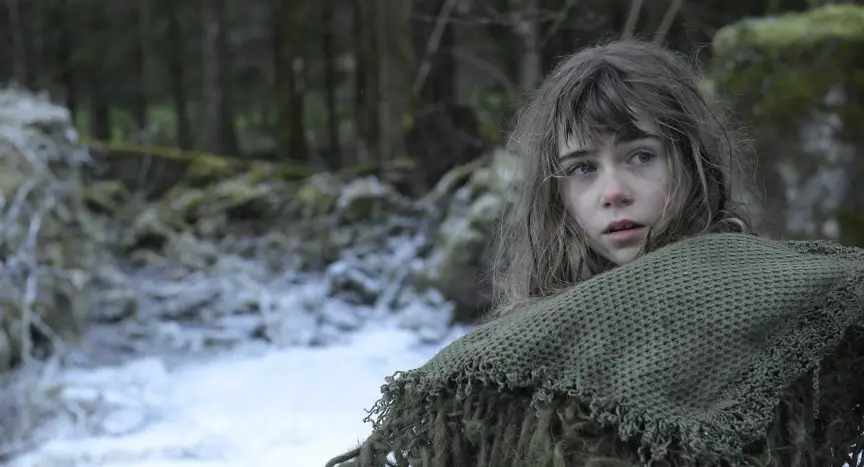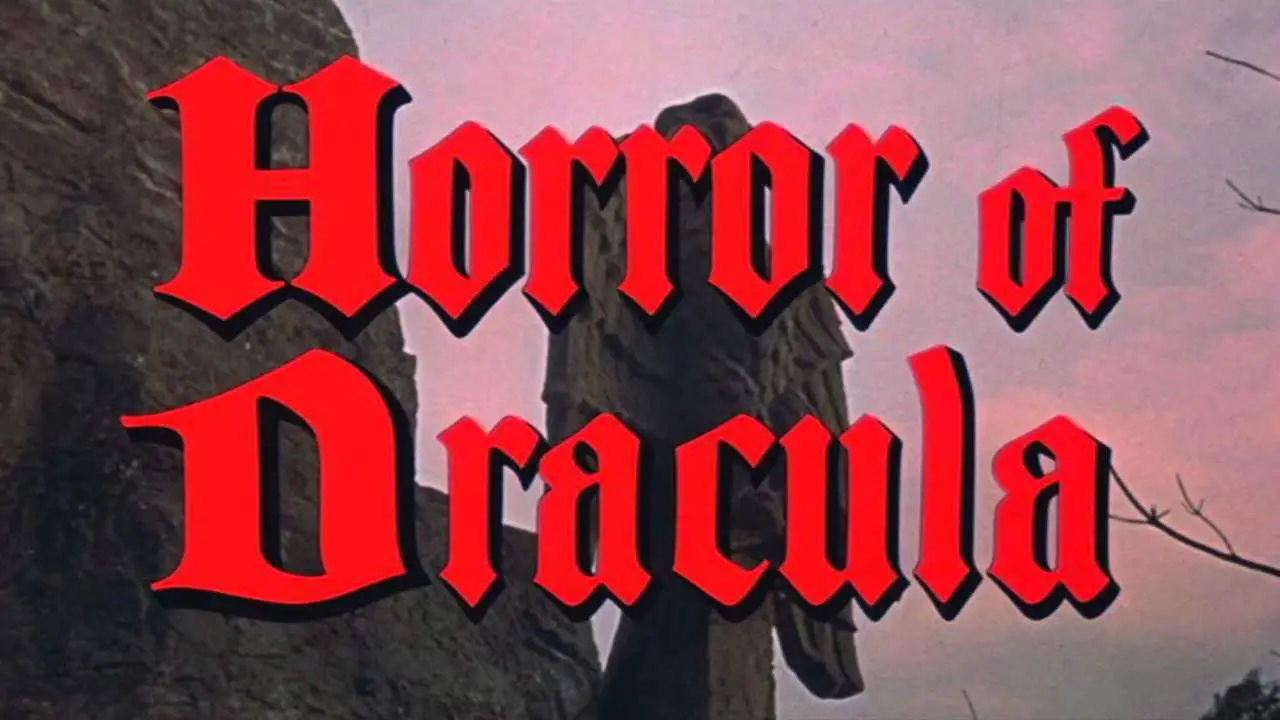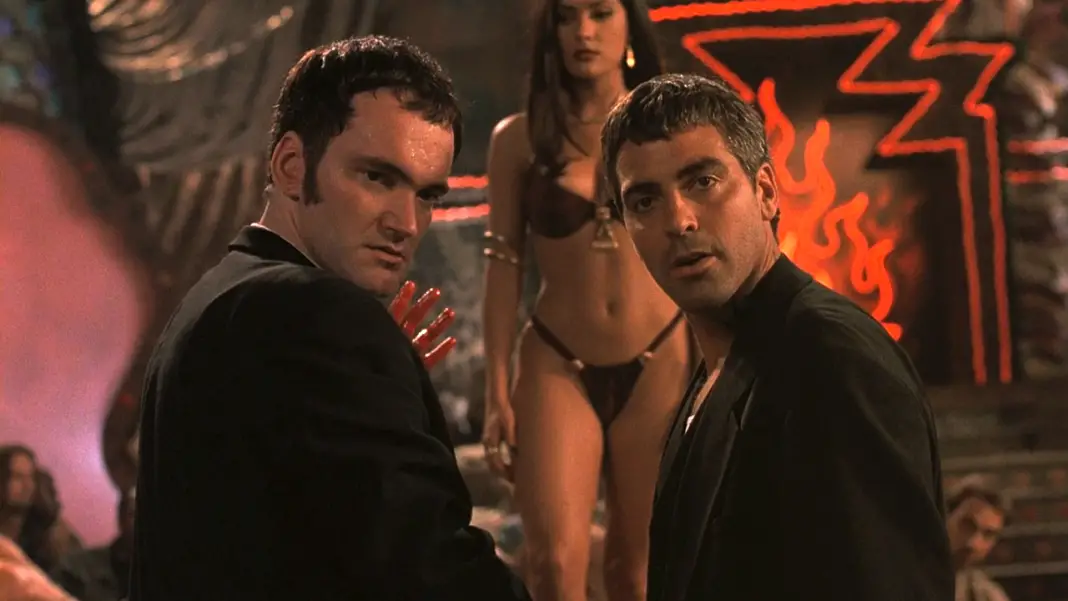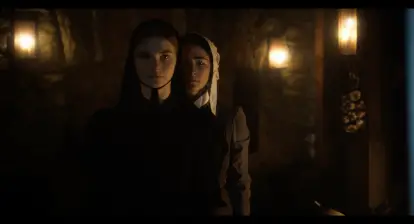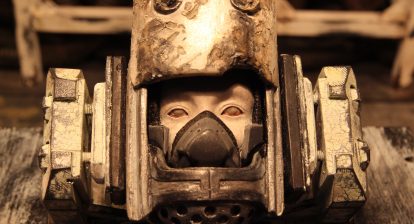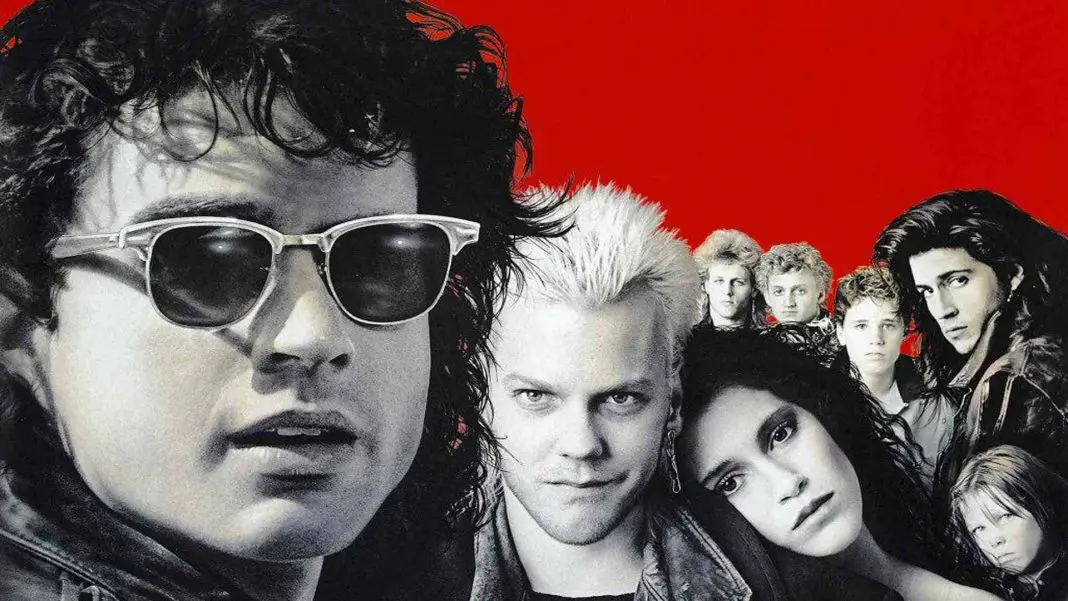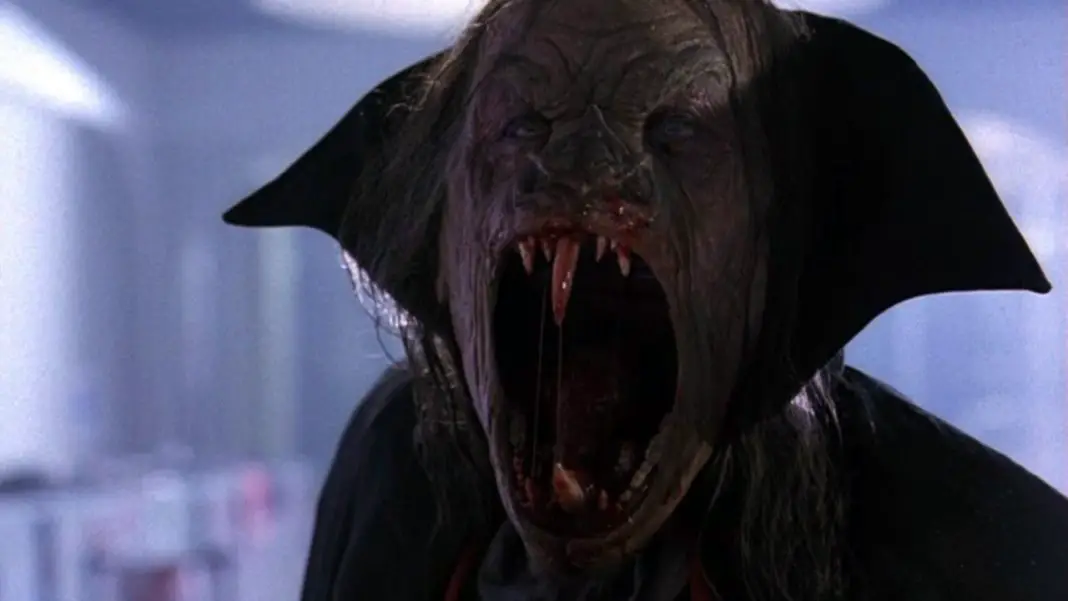All The Moons/Ilargi Guztiak immediately thrusts the audience into the middle of a crisis. Late in 1876, the Third Carlist war’s last gasps are being fought in the Basque region of Spain. The terrified residents of a religious orphanage are carefully being guided into the comparative safety of the cellar, the praying of the nuns not quite drowning out the siege happening above them. Soon the building is barely more than rubble.
Only one young girl (Haizea Carneros) is left clinging to life amongst the ruins, when a mysterious older woman (Itziar Ituño) offers to heal her with a kiss. Assuming the woman is an angel, the young girl accepts this cryptic offer. The child heals as promised, but her newly christened mother figure warns her against going out in daylight or separating from their ragtag group, blaming the soldiers patrolling the landscape. Yet the same violence that brought the pair together tears them apart just as quickly, and she is separated from “Mother” in a violent raid. The young girl is left to fend for herself, unsure if anyone else in the group made it out alive.

Director Igor Legarreta and cinematographer Imanol Nabea’s visual vocabulary is consistently stunning, not just in the picture perfect panoramic vistas of leafy trees and rolling hills, but in the way the light delicately refracts off morning mist, shadows giving way to the brightness of the dawn. There’s a gorgeous hyperrealistic unreality to the surroundings. The cave the girl temporarily calls home, the woods, and the village she eventually finds herself in all read like the filmmakers have a deep fondness for Vermeer, and cribbed his best light bending tricks to create a dark fable in the forest.
 Young actress Haizea Carneros is quite the find. This sort of extended, near silent performance would tax most experienced adult actors, let alone a child performer. She imbues the protagonist with a distinct personality, both curious and cautious in her search to figure out who or what she is. What is going on inside her head is carefully written across her face’s evocative expressions and a few carefully modulated gestures.
Young actress Haizea Carneros is quite the find. This sort of extended, near silent performance would tax most experienced adult actors, let alone a child performer. She imbues the protagonist with a distinct personality, both curious and cautious in her search to figure out who or what she is. What is going on inside her head is carefully written across her face’s evocative expressions and a few carefully modulated gestures.
The girl is a vampire in all but name, and while she doesn’t yet know it, the audience does, which creates a recurring problem where the viewer is too far ahead of the characters. All The Moons‘ pacing is quite leisurely, and waiting for the people on screen to catch up to obvious plot points slows an already measured film to a glacial crawl. The long lead times also give the magic of the movie’s aesthetic accomplishments and strong performances to begin to wear off. A solid 25 minutes is spent establishing the most basic parameters. We follow step by step as the girl chooses animals as a blood source, and incrementally builds up a tolerance and protocol to safely expose herself to daylight (in the more literary side of vampire tradition).
Also See: Eight Movie Vampires That Don’t Get Nearly Enough Credit
The girl’s solitary existence is interrupted when she accidentally caught in a trap behind the garden of a farmer and cheesemaker named Candido (Josean Bengoetxea). Having tragically lost both his wife and daughter, the arrival of the orphaned girl seems like an answered prayer. In his home, she gets her first lasting parental relationship, and opens up enough to tentatively begin to speak. She’s also finally given a name, Amaia.
This section is the most dynamic the film. Candido initially does the talking for both of them and brings a needed touch of comic lightness to those narrations. The pseudo adoption also introduces a conflict other than Amaia’s internal struggles. Even as he slowly begins to realize Amaia isn’t an ordinary child, the relationship is a reprieve from the constant pain of loss. Josean Bengoetxea’s performance is subtle and self assured, as he and Amaia both find something they were missing in each other.
Also See: Not Counting the Count: Noteworthy Vampire Classics That Aren’t Dracula
Candido has found more of God in his relationship with the presumed to be demonic Amaia than he ever did with the local parish priest and his church (who seem to be more interested in manipulating his grief for obedience and a bigger tithe). This is All The Moons’ most original idea, and an intriguing one that fits in with its slow burn tone and focus on the emotional devastation of a universe where vampirism exists.
Unfortunately, this promising thread is left underutilized for another time cut and a return to familiar thematic tropes. Complex angst between creator and thrall. The existential miseries of a vampiric child who can be emotionally wiser, but never in the body that reflects that maturity. The exhaustion of immortality, and that any relationship with mortals will end in the blink of an eye, because of their ability to die. All puns intended, this is all narrative territory that has been bled dry in previous depictions of vampire lore.
The film attempts to elevate the familiar with deeper emotional resonance, but All The Moons’ similarity to fables and fairy tales ends past its aesthetics. Masterfully acted and visually accomplished, the movie relieves vampires of the dingy theatrics of castles and crypts, but doesn’t have any new lessons to teach us about existence, immortal or otherwise. There’s familiar pathos and a polished sheen, but not the soul its central vampire (and the film as a whole) seems to be searching for.
WICKED RATING: 6/10
Director: Igor Legarreta
Writers: Igor Legarreta, Jon Sagalá
Stars: Itziar Ituño, Haizea Carneros, Josean Bengoetxea
Release date: May 14th, 2021
Studio/Production Companies: Arcadia Motion Pictures,Euskal Irrati Telebista (EiTB),Instituto de Crédito Oficial (ICO)
Country: France, Spain
Language: Basque
Run Time: 102 minutes
